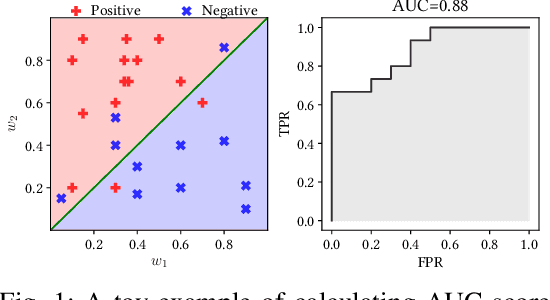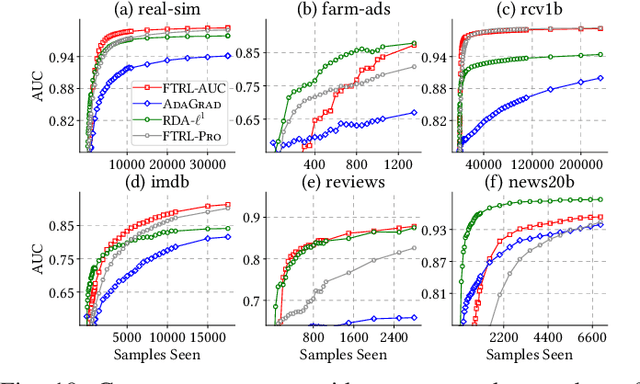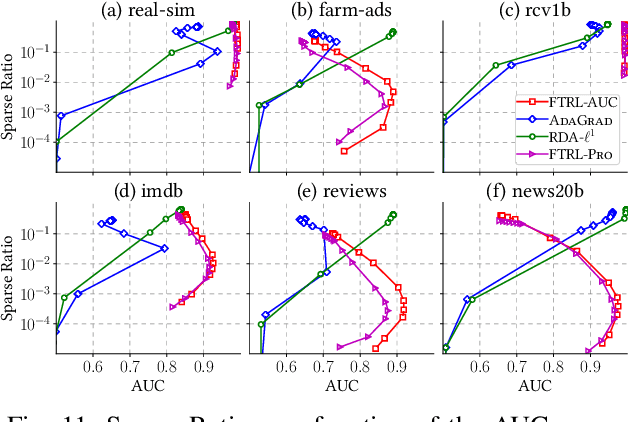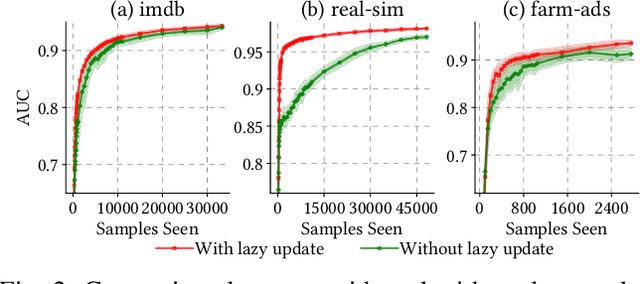Online AUC Optimization for Sparse High-Dimensional Datasets
Paper and Code
Sep 23, 2020



The Area Under the ROC Curve (AUC) is a widely used performance measure for imbalanced classification arising from many application domains where high-dimensional sparse data is abundant. In such cases, each $d$ dimensional sample has only $k$ non-zero features with $k \ll d$, and data arrives sequentially in a streaming form. Current online AUC optimization algorithms have high per-iteration cost $\mathcal{O}(d)$ and usually produce non-sparse solutions in general, and hence are not suitable for handling the data challenge mentioned above. In this paper, we aim to directly optimize the AUC score for high-dimensional sparse datasets under online learning setting and propose a new algorithm, \textsc{FTRL-AUC}. Our proposed algorithm can process data in an online fashion with a much cheaper per-iteration cost $\mathcal{O}(k)$, making it amenable for high-dimensional sparse streaming data analysis. Our new algorithmic design critically depends on a novel reformulation of the U-statistics AUC objective function as the empirical saddle point reformulation, and the innovative introduction of the "lazy update" rule so that the per-iteration complexity is dramatically reduced from $\mathcal{O}(d)$ to $\mathcal{O}(k)$. Furthermore, \textsc{FTRL-AUC} can inherently capture sparsity more effectively by applying a generalized Follow-The-Regularized-Leader (FTRL) framework. Experiments on real-world datasets demonstrate that \textsc{FTRL-AUC} significantly improves both run time and model sparsity while achieving competitive AUC scores compared with the state-of-the-art methods. Comparison with the online learning method for logistic loss demonstrates that \textsc{FTRL-AUC} achieves higher AUC scores especially when datasets are imbalanced.
 Add to Chrome
Add to Chrome Add to Firefox
Add to Firefox Add to Edge
Add to Edge